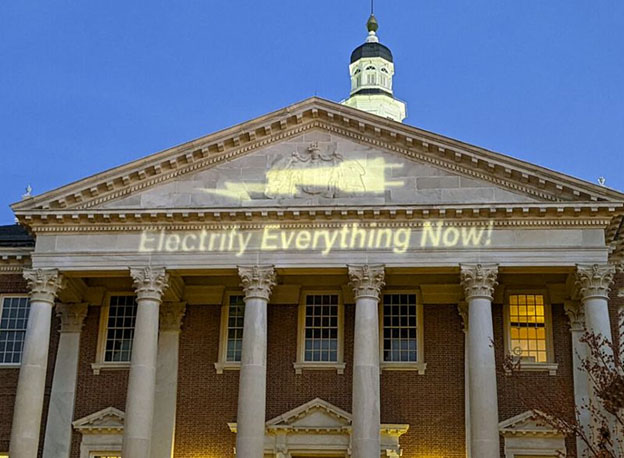Posts by admin
Ending population growth is a mark of progress
Economic growth does not require population increases. We can grow our economy by using education and technology to increase productivity. We live in a world of finite resources with food, water, and health care insecurity. With slower or zero population growth, we can make greater progress toward resolving economic and environmental issues and boost our productivity as a nation and the quality of life for all of us. Calling for population growth to increase the number of workers flies in the face of the need to find employment for the 6.3 million currently unemployed.
Read MoreWith the climate crisis bearing down, Maryland legislators cave in to fossil fuels
Suspending the gas tax may sound good, but it’s a bad idea. Are our elected officials blind to the fact that almost nine out of every 10 barrels of oil used in Maryland are consumed by the transportation sector and that 36% of greenhouse gas emissions come from motor vehicles? Or that Americans use more oil than any nation, exceeding the next highest nation by 54% while consuming 20% of all oil with only 4% of the world’s population?
Read MoreHelp Return the Patuxent River Commission to Protecting the River
from Fred Tutman (the Patuxent Riverkeeper) and Barbara Sollner-Webb (President of the West Laurel Civic Association) You may have seen recent articles in the Washington Post, Baltimore Sun and Laurel Leader about the Patuxent River Commission — this is an update and call to action. The Patuxent River Commission (PRC) is Maryland’s only governmental river…
Read MoreReport finds Maryland is lax in regulating poultry industry pollution
By Gerald Winegrad A new report, “Blind Eye to Big Chicken,” documents a near complete abdication by Maryland agencies of their responsibilities to enforce critical pollution control regulations to rein in massive poultry industry pollution. The report by the watchdog group Environmental Integrity Project (EIP) details how chicken growers continue to violate state laws with…
Read MoreHow do we fight waterborne diseases? By reducing emissions and alerting the public to the dangers…
Health departments and the Department of Natural Resources need to issue regular public notices through the media about the dangers posed by these toxic organisms. Their messages should indicate precautions that can be taken to avoid waterborne diseases, especially for those most susceptible, including the immunocompromised or those with diabetes or chronic liver disease. Here’s what needs to be emphasized:
Read MoreFlesh-eating diseases are Chesapeake Bay’s dirty secret
By Gerald Winegrad On Aug. 5, Patty Peacock was checking crab pots on her pier on Harness Creek just as she has every summer day for decades. I have done the same at my pier just north of hers on Oyster Creek. Shaking the pot, she nicked the underside of her right arm. Bleeding, she…
Read More